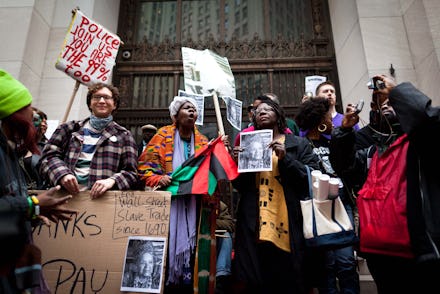The Racial Wealth Gap Would Take a Black Family 228 Years to Overcome

For all the talk about income inequality, wealth inequality may be hurting you even more, especially if you're a person of color.
That's because the wealth gap, which looks at a person's total net worth, is much wider than the gap between the annual incomes of the richest and poorest Americans — and may have more lasting ramifications.
Through the lens of race, the numbers are particularly striking.
In the current economic climate, and if present trends continue, a black household would have to work 228 years to accumulate $656,000, the average amount of wealth held by a typical white household, according to a new paper from the Institute of Policy Studies and the Corporation for Enterprise Development.
Latino families would need 84 years to amass the same volume of wealth, the study found.
Alas, even as the United States grows more racially diverse, the gaps are projected to get worse: By the year 2043, the researchers behind the study estimate that the wealth gap between white and black families will have doubled.
One main culprit is differences in rates of homeownership, the study found, which is important because roughly 63% of middle-class wealth is invested in houses and apartments.
As the Nation points out, the Fair Housing Act, which finally made it illegal for landlords, builders, and lenders to discriminate based on race, wasn't passed until 1968, after black families had already missed out on decades of growth. Therefore the consequences of government sanctioned "red-lining" — denying black families access to desirable neighborhoods — continue to endure to the present.
Today, only 43% of black households own their own home, compared to 72% of white households.
That matters because owning is often cheaper than renting and allows you to pass property on to your children.
The IPS study adds further ammunition to Ta-Nehisi Coates' powerful "Case for Reparations," an award-winning essay in the Atlantic arguing that the theft of black wealth has created "compounding moral debts," meaning the longer we don't do anything about them, the worse the debts get.
In the piece, Coates cites a three-part Associated Press investigation into land that had been taken from black families since before the Civil War.
Some of that land is now quite valuable, including an oil field, a country club in Virginia, and a minor league baseball stadium.